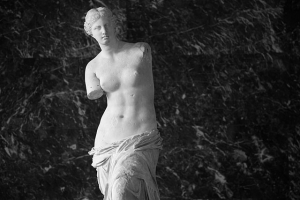XpatAthens
Thursday, 14 July 2022 11:08
Athens Photo Festival 2022
Athens Photo Festival is a leading international festival dedicated to photography and visual culture. Through its programming, the Festival is committed to offering a diverse and inclusive international platform, for the exchange of ideas, artistic expression, and engagement with photography in all its forms.
Honoring the Festival’s 35th anniversary throughout 2022, our program provides a critical context where the impact of the ever-changing visual culture can be raised and discussed. The Festival will bring together emerging and established artists and photographers from around the world, through its exhibitions and events, with the aim to reflect the diversity of photography of our time.
Published in
Art
Tagged under
Friday, 08 July 2022 10:57
FokiaNou Art Space: “Flower Power” Group Exhibition
FokiaNou Art Space is pleased to present "Flower Power", a group exhibition arising from an open call, curated by Panagiotis Voulgaris and Mary Cox.
From early botanical illustrations to the works of Van Gogh, Georgia O’Keefe, Thanos Tsingos, Warhol, and Mapplethorpe, almost all artists have been influenced by flowers. The seasonal cycle of flowers can symbolize beauty, hope, life, and can act as a metaphor for human struggle. Flowers have a therapeutic effect, involving all the senses. In this open call, FokiaNou Art Space invited artists to submit work that uses flowers as subject matter, taking a variety of approaches, whether realist or unconventional, in any medium.
Participating artists: Blanka Amezkua, Ines Benaki, Mary Cox, Stavroula Chantzi, Dimitra Gounari, Jane Grover, Vasiliki Kanellou, Lydia Kontiza, Nina Kotamanidou, Dorina Malliou, Eirini Morou, Despina Pantazi, Geeta Roopnarine, Christina-Sylvia Simantira, Nikos Sialakas, Marios Trichas, Piyi Wong, Kiveli Zachariou.
Hours: Thursday – Saturday 18.00-21.00 During the last week, 25-27/7, Monday–Wednesday 18.00-21.00
Hours: Thursday – Saturday 18.00-21.00 During the last week, 25-27/7, Monday–Wednesday 18.00-21.00
FokiaNou Art Space is an artist-run project space in the intimacy of a small apartment in an old building in the center of Athens. The space encourages collaborative creative efforts between Greek and foreign artists, thereby promoting and supporting the local art community. The space hosts exhibitions, workshops and projects under the direction of two artists, Mary Cox and Panagiotis Voulgaris. www.fokianou247.gr
Published in
Art
Tagged under
Thursday, 14 July 2022 10:33
Nina Kraviz - Bolivar Beach Club
Saturday 16 of July, Nina kraviz the techno scene phenomenon, remixer, and label owner of Trip & Galaxid, with the totally influential attitude, for a unique performance at Bolivar, Along with Nina, Mikee and Manolaco b2b Stefano Di Miceli.
Purchase your tickets here.
Feel the Sand, Feel the Sea, Feel the Air, Live the Experience!

Purchase your tickets here.
Feel the Sand, Feel the Sea, Feel the Air, Live the Experience!

Published in
Music
Tagged under
Wednesday, 13 July 2022 13:50
The First Japanese Park Of Athens Opens Its Gates
The citizens and visitors of Athens were recently handed over the city's first public Japanese park, ANA reports.
According to an announcement, this action, as well as the project for the restoration and regular maintenance of the gardens of the National Archaeological Museum of Athens that was implemented two years ago, are part of the company's goals for a Sustainable Future.
The transformation of the Nereides Park in Pagrati into an authentic Japanese garden and a thematic "green oasis", opposite the national art gallery, was made within the framework of the "Adopt Your City" program of the Municipality of Athens and is under the auspices of the Japanese Embassy.
Originally published on: tornosnews.gr
According to an announcement, this action, as well as the project for the restoration and regular maintenance of the gardens of the National Archaeological Museum of Athens that was implemented two years ago, are part of the company's goals for a Sustainable Future.
The transformation of the Nereides Park in Pagrati into an authentic Japanese garden and a thematic "green oasis", opposite the national art gallery, was made within the framework of the "Adopt Your City" program of the Municipality of Athens and is under the auspices of the Japanese Embassy.
Originally published on: tornosnews.gr
Published in
Local News
Tagged under
Wednesday, 13 July 2022 13:23
“Venus de Milos” Returns To The Island Albeit As Replica
The famous “Venus de Milos” returned to the island albeit as a replica of the original statue that is in the Louvre museum in Paris. The replica was placed near the archaeological site where the statue was discovered in 1820 and upon the initiative of the municipality on the island in the Aegean Sea.
The installation of the replica appears to be on the occasion of a tribute documentary about Aphrodite de Milos, entitled “Looking for Venus”, a co-production of Anemon, Cosmote TV, and the French company Yuzu Productions.
On the occasion of the completion of 200 years since the discovery of the statue and after the issuance of relevant permits and supervision of procedures by the Organization for Management & Development of Cultural Resources and the Ephorate of Antiquities of Cyclades, as well as the financing of the creation and transportation of the statue to the island by company Imerys SA, the filming of the documentary has already started, the municipality of Milos said.
The documentary “Looking for Venus” will present the historical event of the finding, transportation, and fame of the statue and explore how the Venus of Milos, of all the ancient masterpieces, stood out as a timeless and unique work of art, allowing millions of visitors’ eyes to admire her as the most beautiful woman in the world.
About the statue
The Venus de Milo is believed to depict Aphrodite the Greek goddess of love, whose Roman counterpart was Venus. The sculpture is sometimes called the Aphrodite de Milos, due to the imprecision of naming the Greek sculpture after a Roman deity (Venus).
The work was originally attributed to the 4th-century Athenian sculptor Praxiteles, but, based upon an inscription on its plinth, it is now widely agreed that the statue was created later, and instead is the work of Alexandros of Antioch.
Made of Parian marble, the statue is larger than life-size, standing 204 cm (6 ft 8 in) high. The statue is missing both arms, with part of one arm, as well as the original plinth, being lost after the statue’s rediscovery.
To read this article in full, please visit: keeptalkinggreece.com
The installation of the replica appears to be on the occasion of a tribute documentary about Aphrodite de Milos, entitled “Looking for Venus”, a co-production of Anemon, Cosmote TV, and the French company Yuzu Productions.
On the occasion of the completion of 200 years since the discovery of the statue and after the issuance of relevant permits and supervision of procedures by the Organization for Management & Development of Cultural Resources and the Ephorate of Antiquities of Cyclades, as well as the financing of the creation and transportation of the statue to the island by company Imerys SA, the filming of the documentary has already started, the municipality of Milos said.
The documentary “Looking for Venus” will present the historical event of the finding, transportation, and fame of the statue and explore how the Venus of Milos, of all the ancient masterpieces, stood out as a timeless and unique work of art, allowing millions of visitors’ eyes to admire her as the most beautiful woman in the world.
About the statue
The Venus de Milo is believed to depict Aphrodite the Greek goddess of love, whose Roman counterpart was Venus. The sculpture is sometimes called the Aphrodite de Milos, due to the imprecision of naming the Greek sculpture after a Roman deity (Venus).
The work was originally attributed to the 4th-century Athenian sculptor Praxiteles, but, based upon an inscription on its plinth, it is now widely agreed that the statue was created later, and instead is the work of Alexandros of Antioch.
Made of Parian marble, the statue is larger than life-size, standing 204 cm (6 ft 8 in) high. The statue is missing both arms, with part of one arm, as well as the original plinth, being lost after the statue’s rediscovery.
To read this article in full, please visit: keeptalkinggreece.com
Published in
Local News
Tagged under
Thursday, 03 April 2025 07:00
Great Brunch Spots In The City Center
If you love brunch as much as we do, we have some good news for you: Athens loves its midday breakfast. Like other Mediterranean people, Greeks are real foodies and they give so much importance to every meal. Let’s see where you can have the best brunch right in the city center!
Black Duck Garden
Black Duck Garden

@black_duck_athens
Located at the Athens City Museum, Black Duck Garden is a small oasis in the heart of the city. Respectful of the historical and natural environment, Black Duck Garden offers a Mediterranean menu with most of the ingredients coming from Greek nature and traditional cuisine. It’s the perfect place for coffee breaks, lunch breaks, brunch, and business meetings.
Location: loannou Paparrigopoulou 7, Athina
Telephone: 21 0325 2396
Beauty Killed The Beast

@beauty_killed_the_beast_gr
An impressive neoclassical building turned into a cozy shop, Beauty Killed the Beast is a brunch hotspot where you can enjoy re-invented Greek classics like the stifado burger with slow-cooked beef and onions and imaginative cocktails.
Location: Paramithias 14, Athina
Telephone: 21 0524 0117
Me Kolonaki

@me_kolonaki
Me is a beautiful space with a minimalist, clean-cut design in Kolonaki. The menu is based on simplicity and quality with a focus on healthy eating and modern culinary trends. Brunch is a big part of Me, as is coffee, and on the menu, you will find smoothies that can accompany various dishes like eggs, omelets, avocado toast, spinach toast, and many more.
Location: Kapsali 10, Athina
Telephone: 21 0724 2588
Hippy 3

@hippy3athens
Green accents, Scandinavian elements, wood, and earthy colors dominate the interiors of this all-day bar-restaurant on Spyrou Merkouri Street. Cozy and warm Hippy 3 offers great brunch options like fluffy pancakes or Croque madame as well as Greek-inspired dishes such as peinirli with minced meat. On the menu, you will also find mini burgers, open sandwiches, flatbreads, and delicious sweets.
Location: Spirou Merkouri 22A, Athina
Telephone: 21 0725 1154
Ohh Boy

@ohhboy_ath
In the popular neighborhood of Pagrati, Ohh Boy reminds us of something from a Greek island oozing with freshness yet at the same time referring to a Scandinavian minimalist aesthetic. Its sweets are definitely the highlight served in tasteful antique dinnerware. The menu also includes "small eats”, such as slow-roasted pork burgers, avocado sandwiches on rye bread with pesto, and a variety of vegan-friendly salads.
Location: 32, Archelaou street, Athina
Telephone: 21 1183 8340
Published in
City Discovery
Tagged under
Monday, 11 July 2022 07:00
Athens Named Best Brunch Spot In Europe
This we know: Athenians love to brunch. Over the last decade, brunching went from a trend to a concept wide open for experimentation, to a standard meal worthy of its own menu at almost every café and restaurant in the city. At first, it was all about typical American dishes like pancakes and sliders, but before long, chefs realized the potential of traditional homestyle Greek foods which, dressed up, found their way back to the tables; trahana got paired with poached eggs, and sourdough bread topped with Myconian lountza (cured pork tenderloin). Unlike some food trends that come and go in the span of a couple of years, locals have embraced brunch wholeheartedly, and it’s not surprising, considering that few Greeks have big breakfasts, thereby leaving room for a breakfast-like meal ahead of lunch.
In fact, Athens has risen to the best city in Europe for brunch, according to new research by Uswitch.com. Amazingly, the Greek capital appears to have surpassed even places with a long-established brunch culture, like the UK.
To establish their rankings, the company analyzed data from Tripadvisor for all major cities in Europe, taking into account the number of restaurants and their ratings, as well as prices. Besides the many options and high average quality of the food served in Athens, the affordable rates secured its spot. “With 1,136 restaurants to choose from, the average price of a brunch in the ancient city is just €16.66 on average, the fifth cheapest of all capitals analyzed,” a press release for the study stated. For true lovers of the pre-midday munch, these low prices make brunching an option for every day, rather than just a Sunday tradition. Meanwhile, cities like Copenhagen, known as a foodie’s paradise with gourmet options for the meal in question (Smørrebrød anyone?), received lower ranking due to their high rates.
Athens climbed from second to first place this year, having placed just below Tirana in the same study last year.
Originally published on: greece-is.com
In fact, Athens has risen to the best city in Europe for brunch, according to new research by Uswitch.com. Amazingly, the Greek capital appears to have surpassed even places with a long-established brunch culture, like the UK.
To establish their rankings, the company analyzed data from Tripadvisor for all major cities in Europe, taking into account the number of restaurants and their ratings, as well as prices. Besides the many options and high average quality of the food served in Athens, the affordable rates secured its spot. “With 1,136 restaurants to choose from, the average price of a brunch in the ancient city is just €16.66 on average, the fifth cheapest of all capitals analyzed,” a press release for the study stated. For true lovers of the pre-midday munch, these low prices make brunching an option for every day, rather than just a Sunday tradition. Meanwhile, cities like Copenhagen, known as a foodie’s paradise with gourmet options for the meal in question (Smørrebrød anyone?), received lower ranking due to their high rates.
Athens climbed from second to first place this year, having placed just below Tirana in the same study last year.
Originally published on: greece-is.com
Published in
Greece In The News
Tagged under
Monday, 11 July 2022 07:00
Samothrace: The Most “Un-Greek” Island Of Greece
Samothrace (or Samothraki) is a little-known Greek island in the northern Aegean sea. The island boasts many breathtaking waterfalls and is surrounded by crystal clear waters.
Despite being slightly off the beaten track, Samothrace is a must-visit for nature lovers who want to immerse themselves in paradise!
Geography of Samothrace Island
Samothrace is one of the most rugged Greek islands, with its highest peak, Mt. Saos, rising 1,611 meters into the sky. The island is a paradise for those interested in alternative forms of tourism because it offers countless activities and possibilities, all against a breathtaking natural background of cliffs, forests, and water.
Samothrace is unique for its landscape combining mountainous terrain, fresh springs, and the bluest seas. The island is full of beaches, archaeological sites, rivers, and streams, making it an idyllic choice for summertime exploration. Visitors often come to Samothrace to hike and camp, making an effort to visit all of the stunning natural wonders on the island.
The rich vegetation and waterfalls of the island add to its beauty with the most famous waterfalls being Kleidosi (created by the stream Fonias) and Kremasto with its cave. The waterfalls on the island are a big draw, as naturally occurring waterfalls are not particularly common across Greece.
Things to do on Samothrace
The port of Kamariotissa, the most crowded part of the island, is connected to Alexandroupolis via ferries. Kamariotissa has a number of amenities, including supermarkets and banks, as well as a number of restaurants and cafes. Fishing is one of the island's primary industries, and a lovely array of traditional wooden fishing boats can be seen at the port.
The Sanctuary of the Great Gods is the main tourist attraction of the island. It was well-known during Ancient Greece due to being a gathering place for a “mystery religion.” Mystery religions were religious schools that only allowed participation by initiates, keeping the faiths themselves shrouded in mystery.
To read this article in full, please visit: greekreporter.com
Despite being slightly off the beaten track, Samothrace is a must-visit for nature lovers who want to immerse themselves in paradise!
Geography of Samothrace Island
Samothrace is one of the most rugged Greek islands, with its highest peak, Mt. Saos, rising 1,611 meters into the sky. The island is a paradise for those interested in alternative forms of tourism because it offers countless activities and possibilities, all against a breathtaking natural background of cliffs, forests, and water.
Samothrace is unique for its landscape combining mountainous terrain, fresh springs, and the bluest seas. The island is full of beaches, archaeological sites, rivers, and streams, making it an idyllic choice for summertime exploration. Visitors often come to Samothrace to hike and camp, making an effort to visit all of the stunning natural wonders on the island.
The rich vegetation and waterfalls of the island add to its beauty with the most famous waterfalls being Kleidosi (created by the stream Fonias) and Kremasto with its cave. The waterfalls on the island are a big draw, as naturally occurring waterfalls are not particularly common across Greece.
Things to do on Samothrace
The port of Kamariotissa, the most crowded part of the island, is connected to Alexandroupolis via ferries. Kamariotissa has a number of amenities, including supermarkets and banks, as well as a number of restaurants and cafes. Fishing is one of the island's primary industries, and a lovely array of traditional wooden fishing boats can be seen at the port.
The Sanctuary of the Great Gods is the main tourist attraction of the island. It was well-known during Ancient Greece due to being a gathering place for a “mystery religion.” Mystery religions were religious schools that only allowed participation by initiates, keeping the faiths themselves shrouded in mystery.
To read this article in full, please visit: greekreporter.com
Published in
Travel Greece
Tagged under
Sunday, 10 July 2022 12:40
Embassy Of South Africa In Greece
Email: athens.info@dirco.gov.za
Telephone: 003 021 06178020
Location: 60 Kifissias Avenue, Marousi, 15125
More information can be found in French and Greek on the embassy's official website.
Follow the South African embassy on Facebook.
Telephone: 003 021 06178020
Location: 60 Kifissias Avenue, Marousi, 15125
More information can be found in French and Greek on the embassy's official website.
Follow the South African embassy on Facebook.
Published in
Embassies
Tagged under
Sunday, 10 July 2022 12:31
Embassy Of France In Greece
Telephone: 21 0339 1000
Location: Leof. Vasilissis Sofias 7, Athens
More information can be found in French and Greek on the embassy's official website.
Follow the French embassy on Facebook.
Location: Leof. Vasilissis Sofias 7, Athens
More information can be found in French and Greek on the embassy's official website.
Follow the French embassy on Facebook.
Published in
Embassies
Tagged under










